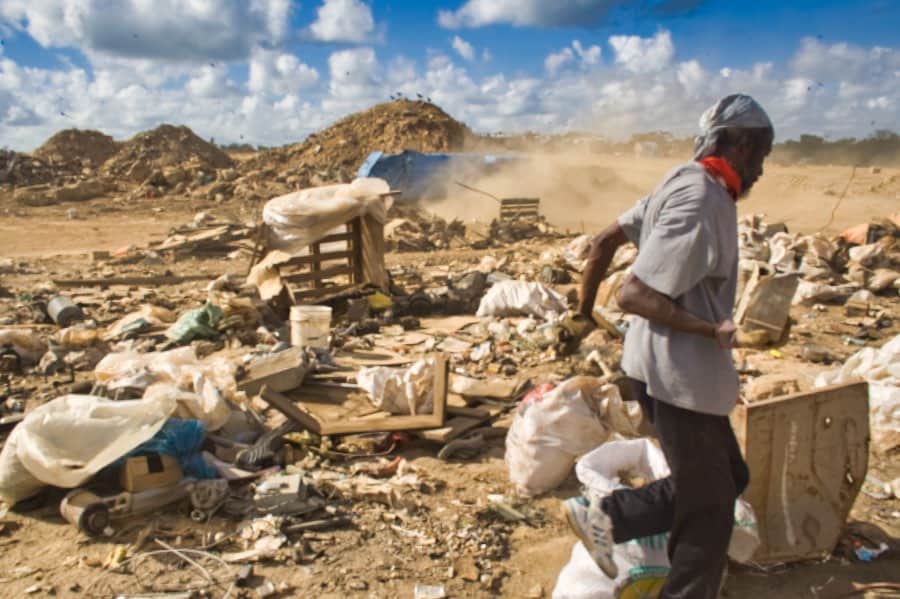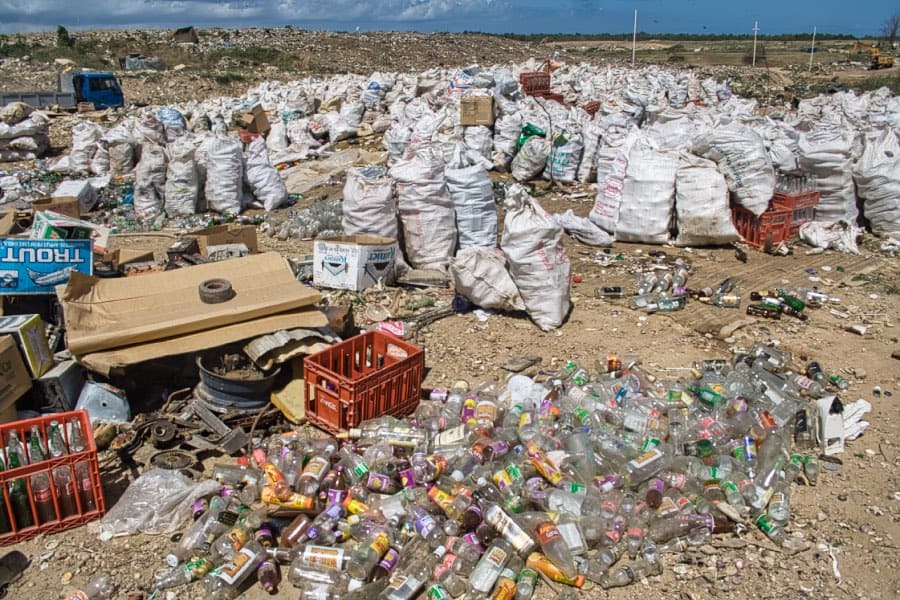
Above: “Plaits” prepares the sorting area for material at Ossie “Fats” Stout’s base of operations at the Beetham Dump in 2006. Photo by Mark Lyndersay.
BitDepth#1272 for October 22, 2020
On Wednesday last week, the Lions Club International District 60A announced an ambitious strategy to redirect 50 tonnes of electronic waste from garbage bins to recycling and refurbishing initiatives between October 2020 and April 2021 in Suriname, Guyana and Trinidad and Tobago.
Globally, 53 million metric tonnes of ewaste were bagged for collection in 2019 alone.
Aretha Forde, a Lioness as well as an official of Guyana’s Environmental Protection Agency, explained that “Ewaste contains materials that are both hazardous and valuable and do not belong in a landfill.”
“It’s not really waste; it’s just a resource that has reached the end of its life and can be repurposed.”
Formally, ewaste is any item that contains a circuit board and can be powered by electricity. It is the fastest growing solid waste stream in the world.
Carlos De Leon, Business Development Manager of recycler Piranha International Limited correctly noted that the challenge of educating the public on proper ewaste disposal parallels the problems that have stymied previous efforts at creating a culture of recycling.
After the coaching, there are few collection points and poor infrastructure, so there is a loss of momentum and enthusiasm.
Massy Stores, back when they were known as HiLo, set up bins for used batteries. The collection points moved further and further inside the store until they disappeared entirely.
Undifferentiated garbage in Trinidad is dumped daily at the three sites managed by the solid waste company. Trinidad generates 700,000 tonnes of waste every year.
More recently, the company accommodated the Kansmacker project, which gamified collecting plastic and tinned soft drink containers.
Kansmacker clearly struggled to keep the machines running and to collect the crushed waste.
The store’s managers chafed at tying up their staff doing something other than selling groceries, and eventually the project collapsed.
Shervan Ifill, Solid Waste Specialist – Police Planning and Strategy at SWMCOL offered up some chilling statistics on TT waste.
The country generates 700,000 tonnes of waste every year according to a 2010 study. Undifferentiated garbage in Trinidad is dumped in one of the three sites managed by the solid waste company.
Of the three landfills, two are already past their built capacity and the third is almost full.
Beetham has a capacity of 928 tonnes, Forres Park handles 490 tonnes and Guanapo accommodates 270 tonnes.
Organics make up just 27 per cent of the composition of municipal solid waste and 84 percent of it contains recyclable material.
TT has only scratched the surface of recycling.
Most of the efforts at recycling are pilot projects. Some private players like Ace Recycling are involved.
There is only one local recycler and processor, ANSA Glass, which crushes and reuses glass bottles.
SWMCOL has moved from trying to chase people making a living on the dump to calling them waste pickers, but clearly can’t control all of them, so the profession remains unruly and dangerous.
In May 2006, I spent a morning photographing the recycling/scavenging operations at the Beetham landfill, a surprisingly polished and lucrative operation.
There has been a National Waste Recycling Policy since 2015, but the management of ewaste is spread across multiple pieces of legislation and government policy documents.
TT acceded to the Basel Convention since 1994, accepting an international agreement that controls the import, export and transit of listed waste materials, but it’s only relevant to the few recyclers operating in the country.
It’s a no-brainer to salute the efforts of the Lions club to do what we haven’t mustered the will to do, but until we take recycling seriously, it’s a finger in a dyke holding back an unimaginable flood of toxins.
TT has to change the way it dumps and that’s a big behavioural adjustment that has to be reinforced with practical infrastructure.


